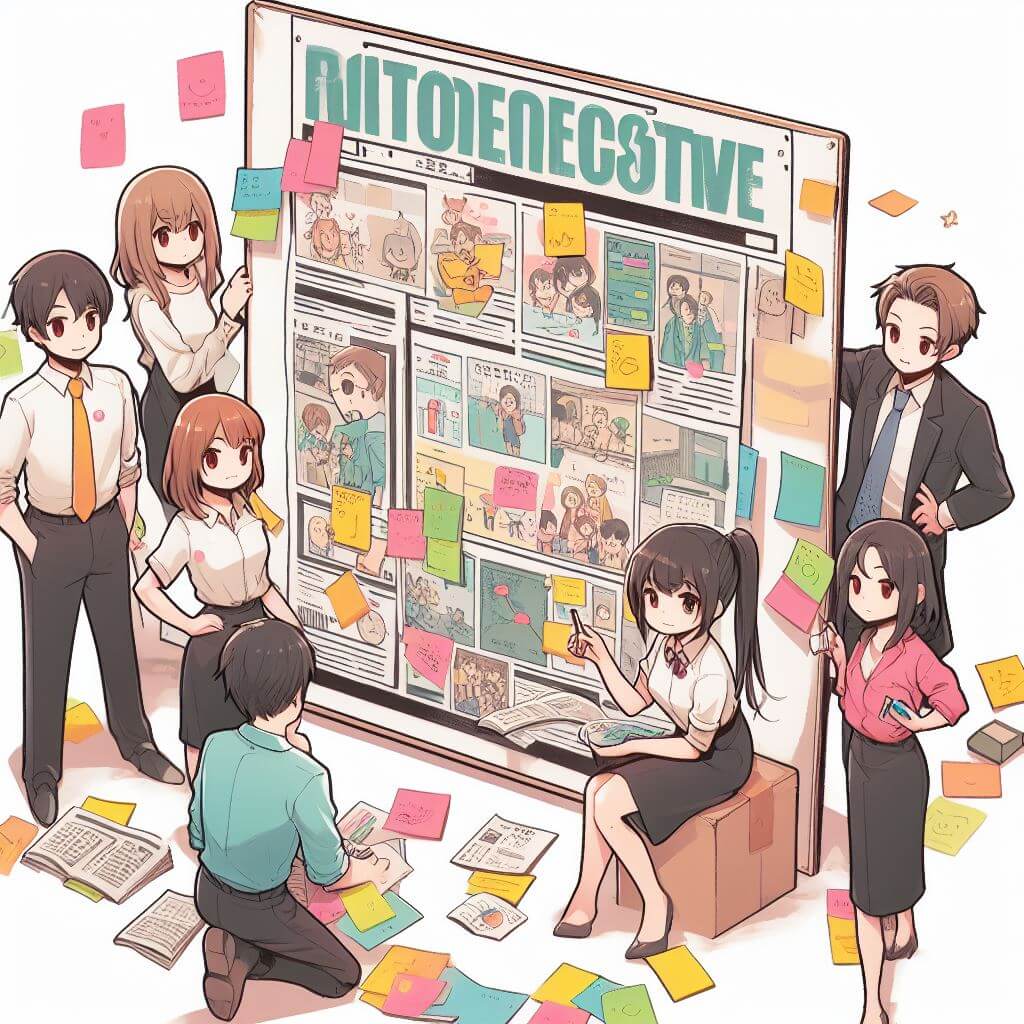自走できる人ってどんな人

はじめに
こんにちは!KINTOテクノロジーズ(KTC)プロジェクト推進GのRisako.Nです。
普段はPjMとして色々なプロジェクトに参画しています。
KTCにおけるプロジェクトやPjMとは…については、前回横断プロジェクトの始まり方とPjMのお仕事紹介という記事でご紹介させていただきましたので、ご興味ある方はそちらの記事をご覧になっていただけるとうれしいです。
いったんここでもざっくりと「PjMとは何か」を紹介させていただくと、KTCでは基本的にプロダクトごとに開発Gやチームがあり、各々のPdM中心に開発が進められています。ただ新しいサービスの立ち上げなどプロダクトを横断する案件、また横断的でなくとも規模が大きい案件などはPjMを置き、プロジェクトを立ち上げ推進させていくという役割をPjMが担うこととなります。

プロジェクトとしてはKINTO-ONE(サブスク)やKINTO-FACTORYといったKINTOの既存サービス事業に関わるもの、KTCオウンドメディアやサービス、さらにはKINTOとしての新たな事業立ち上げなど多種多様なものが日々発生しており、それぞれのプロジェクトは発生した段階では何がゴールかまだわかっていないことも多くあります。色々なプロジェクトに携わるたびに、そんな不透明な状況下でもプロジェクトを前進させていく力、また自分自身としても前に進んでいく力が必要だなというのを感じており、今回は「前に進んでいく力」=「自走力」をテーマに思うことを書いてみたいと思います!

「自走力」とは
前書きがだいぶ長くなってしまいましたが「自走力」とは。
近年よく聞こえてくる(特に採用市場などで多いかも)ワードかと思います。なんとなくわかるような、わからないような。。定義を探してみたところ、「自走力」という言葉自体にしっかりとした定義はないようですが、コトバンクには「自走」の定義が記されていました。
他の動力によらず、自身の動力で走ること
つまり「自走力」とは「自身の動力で走ることができる力」、仕事に置き換え+αの表現を加えると「(どのような状況下においても、)自分の考え・行動でその仕事を前に進めることができる(、完遂することができる)力」かと思います。カッコ部分はそこまでできるとパーフェクトですね!と思う理想像です。

自走力=自分自身の動力で走れること!
「自走できる人」ってどんな人
「自走力」をさらに噛み砕いて、具体的に「自走できる人ってどんな人?」を考えてみます。
-
ゴールがはっきりしていなくても、前進することができる人
-
やり方がわからなくても、前進することができる人
-
誰かの真似をするだけではなく、自分の考えをアウトプットできる人
「自走できない人」で考えるとこんな人かなと思います(自走できる人の逆ですね!)。
-
指示がないと動けない人
-
自分がわからないことはできないと決めつけてしまっている人
-
言われたことをするだけの人
「自走できる人」の表現として「前進」と書きましたが、これもポイントです。「暴走」はダメで、あくまで「きちんと前に進めることができる人」が自走できる人!と思っています。

くれぐれも暴走してしまわないように!
どうやったら「自走できる人」になれるかな
そんなやり方があればぜひ教えてほしい…とわたし自身も思っているのですが、ただ色々なプロジェクトに携わり、少なくとも一輪を担っている中でわたし自身がどういうことを心掛けているかを今回ご紹介しようと思います。
-
対話を大事にする
-
初めて仕事をするもの同士だと、色々なところにギャップがあるのが当然
-
思い込みはついついしてしまうものなので、思い込みや決めつけをしないように注意しながら、まずは考えていることを出し合う
-
考えを出し合っていくことで関係性もできてくる
-
-
小さく作ってアウトプットしていく、フィードバックを大事にする
-
わからない状況下では、何か作ることや発信することにも恐れがちになるけれど、まずは小さいものからアウトプットしてまわりの人とのギャップを埋めていく
-
色々受ける意見は自分の不備不足と捉えず、フィードバックと捉える(後ろ向きに受け取らず、前向きに受け取る)
-
-
完了の定義に誤解がないようにする
-
何をもって完了なのかは人によって違いがちなので、関係者間で共通認識を持つようにする
-
例えば、チームのタスク運用を見直すことになって担当をアサイン、その後見直しタスクがいつのまにか完了になっていたけれど、マニュアル変更しただけで終わったことになっていた…見直し内容をチーム内で確認・周知して完了と思ってたのに…(自分の当たり前は他人の当たり前ではない)
-
-
余計な問題に対して余計に悩まない
-
悩むのは適切なときに悩む(今悩んでも無駄なことを今悩まない)
-
今一生懸命考えたとしても、本当に必要なときになると状況が変わっていることもしばしば(一生懸命考えたことが結局無駄になる)
-
-
価値とは何か
-
この仕事は何のための仕事なのか、できあがるものは誰の何のためのものなのか、何をもたらすものなのかを意識する(ついつい「やること=目的」になりがち)
-
開発途中に変更要求があった場合、開発サイドとして途中変更は辛いと思ってしまいがちだけど、今作っているものの価値を考えると、この変更やった方がいいね!と前向きにがんばることができるし、結果的にうれしい
-
今自分がここに存在する意味、価値を意識する(ただ与えられた仕事をしているだけでは自分の価値って出てないよね、と思う)
-
-
自分のできることを意識する
-
「できないこと」は目につきやすいけど、「できること」(自分の価値)を意識する
-
例えば、この仕事をする前と今を比べて変わったこと(できるようになったこと)ってなに?と考えて、「できること」「できるようになったこと」を見つける
-
-
まわりを見習う
-
まわりの人で、あの人のこういうところいいな!と思うところを意識する
-
意識することで自分もいいなと思う姿に少し近づけることもある
-
例えば、○○さんは口数は少なめだけど、作る資料はとってもわかりやすい!なにがわかりやすいって感じるポイントなんだろう?といった視点で見ると、わかりやすい資料のコツを見つけることができたり
-
挙げていくと意外とキリがないな、そして教科書っぽいことばかりだな…と思いましたが、基礎となる意識やスタンスを文章化するとやはり教科書っぽくなってしまうのは仕方ないのかな…ということでご了承ください(この記事をご覧いただいている方にとって、何か1つでも心や目に留まるものがあればいいなぁと思っています)。
自走力とアジャイルマインド
前述したわたしの心掛けを眺めると、随所にアジャイルマインドを感じる方もいらっしゃるかもしれません。
アジャイルの原則にあるself-organizing teams(自律した組織)を形成するには、そもそも1人1人が自律する・自走できる必要があり、そうなれるためのエッセンスがアジャイルやスクラムにあって、これまでの経験の中で植え付けられたんじゃないかな、と自己解釈しています。
The best architectures, requirements, and designs emerge from self-organizing teams.
最良のアーキテクチャ・要求・設計は、 自己組織的なチームから生み出されます。
KTCではプロダクトによってスクラムを採用しているグループもありますし、ウォーターフォール型のグループもあります。ただ開発プロセスがウォーターフォール型であっても、KTC全体総じてのマインドとしてはアジャイル(小さな単位で価値を生み出して、対話と協調を重んじながら改善を繰り返していく)だと思います。そういったアジャイルマインドの環境下で働いてみたいなと思う方がいれば、ぜひKTCにジョインいただけるとうれしいです。
また、もちろんご自身の自走力を発揮したいぞ!と考えられている方にとっても、KTCは思う存分発揮できる環境と思いますのでぜひお待ちしています。
おわりに
今回はKTCの実態がわかるような事例のご紹介はほぼなく、概念的なお話ばかりになってしまいましたが
- 「自走力」ってなんだろうなぁと思っている方に対して、一例のご紹介
- 自分自身の「自走力」について考えるきっかけ
になれば幸いです。
関連記事 | Related Posts
We are hiring!
【PjM】KINTO開発推進G/東京
KINTO開発部 KINTO開発推進グループについて◉KINTO開発部 :67名 KINTO開発推進G:8名 KINTOプロダクトマネジメントG:5名 KINTOバックエンド開発G:17名 KINTOフロントエンド開発G:21名 業務管理システム開発G :9名 KINTO中古...
【UI/UXデザイナー】クリエイティブ室/東京・大阪・福岡
クリエイティブGについてKINTOやトヨタが抱えている課題やサービスの状況に応じて、色々なプロジェクトが発生しそれにクリエイティブ力で応えるグループです。所属しているメンバーはそれぞれ異なる技術や経験を持っているので、クリエイティブの側面からサービスの改善案を出し、周りを巻き込みながらプロジェクトを進めています。




